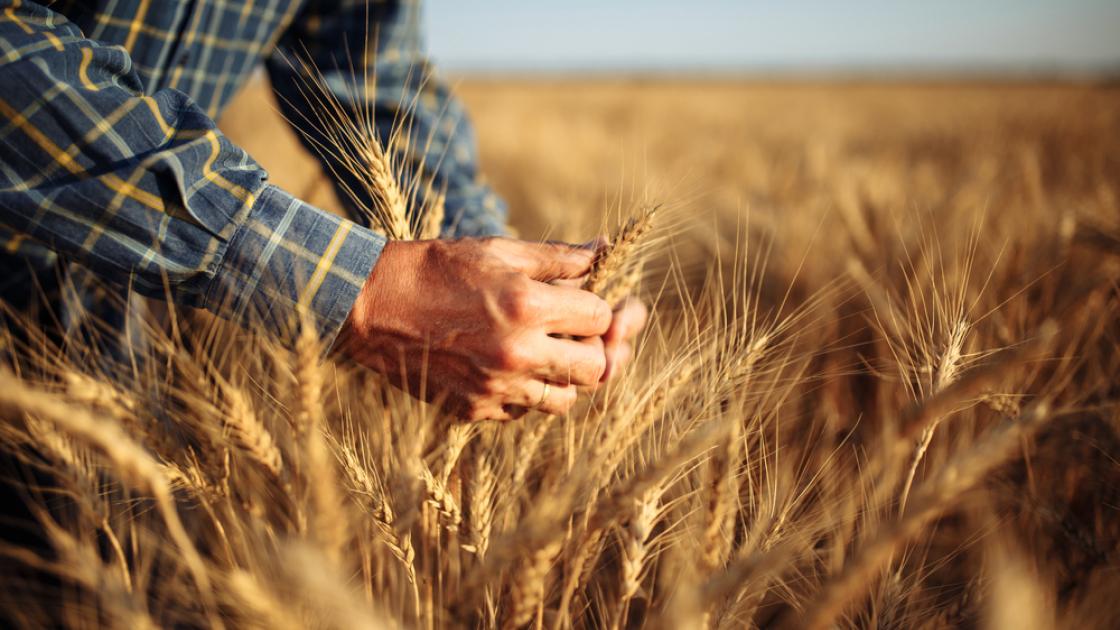
It's harvest season! Protect yourself and your team with these four simple strategies
SIU Medicine's Farm Family Resource Initiative (FFRI) wants our rural and agricultural neighbors to prioritize health and safety all throughout the year. But taking conscious steps to keep yourself, your team and your family healthy is especially important right now during the busy harvest season!
As you wrap up the 2023 fall harvest, here are four simple things you can do to reduce stress, avoid injury and costly accidents and promote overall wellness for yourself and your community.
Update your farm first aid kit
Farm first aid kits should include specific items that are relevant to your farm and worker needs, such as quarts of clean water and syrup of ipecac, which can be used in the event of accidental pesticide exposure. In addition, consider that farming accidents can happen after dark, too—so stock up on flashlights, emergency blankets and flares.
Other general items to include are bandages and compresses, scissors, antibiotic ointments, thermal blankets, gloves, eye wash and medications, including over-the-counter pain relievers and antihistamines. Put a list of emergency contact numbers in each first aid kit, including your local animal control center and poison control center—and be sure to add any relevant medical information about personnel on the farm, such as whether someone has an allergy or takes prescription medication.
When taking inventory of your farm first aid kits, make sure that you:
- Restock any necessary items
- Have the right amount of first aid farm kits based on the size of your farm
- Ensure that workers and family members know where all first aid kits are located
Sign up for a CPR certification or recertification course
It's scary when someone's heart stops beating or when they stop breathing. Becoming certified in basic CPR (cardiopulmonary resuscitation) can help you take action more quickly in the unlikely but possible event that someone on your farm experiences cardiac or respiratory arrest, which can happen during farming accidents such as near drowning, heat exhaustion, grain bin suffocation, traumatic amputation, accidental poisoning and electrocution.
Fast fact: according to the American Heart Association, providing CPR immediately to someone having a heart attack can triple their chances of survival!
This month, explore your local community resources for a CPR training class that you can take once your harvest duties slow down, or sign up for recertification if it's been more than two years since your last course.
Get some bodywork done
No, we're not talking about doing bodywork on your farming equipment—although the end-of-harvest season is a great time to perform routine inspections and maintenance of your equipment, motor vehicles and other structures!
By bodywork, we mean any number of modalities that can prevent and alleviate musculoskeletal pain, including regular physical exercise, massage therapy, physical therapy and even acupuncture and other forms of Traditional Chinese Medicine (TCM).
Did you know? A recent study involving farm and ranch operators found that musculoskeletal discomfort was a strong predictor of stress, sleep deprivation and exhaustion. The researchers concluded that reducing aches and pains could benefit agricultural workers' physical and mental health.
What this means for you: if you have a nagging ache or pain, don't ignore it. Take advantage of the post-harvest slow down to schedule a much-needed massage or an appointment with another health care professional who can help you get relief.
Test out a new healthy sleep habit
Fatigue and sleep deprivation are common causes of farming-related accidents. But for agricultural workers, late nights, early mornings and high stress levels can make it difficult to get a good night's rest.
If you don't consistently get the recommended 7 to 9 hours of sleep per night, now is a good time to test out a new healthy sleep habit. Healthy sleep habits (sometimes called sleep hygiene) include:
- Going to bed and waking up at the same time every day
- Making your bedroom cool and dark
- Having a relaxing wind-down routine
- Avoiding large meals close to bedtime
- Minimizing alcohol and caffeine intake
- Getting about 30 minutes of moderately intense exercise on most days
Choose a healthy sleep habit that works for you and commit to it for at least a few weeks.
Your health and safety matters!
Being proactive about your physical and mental health is essential for keeping your farming operations running smoothly, especially during the busy harvest season. To connect with a provider who understands your unique needs, find a doctor today at SIU Medicine or explore more of our services through SIU's Farm Family Resource Initiative.
Karen Leavitt Stallman
Ag Resource Specialist



